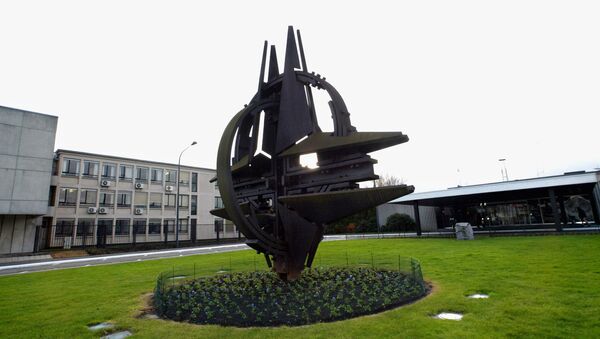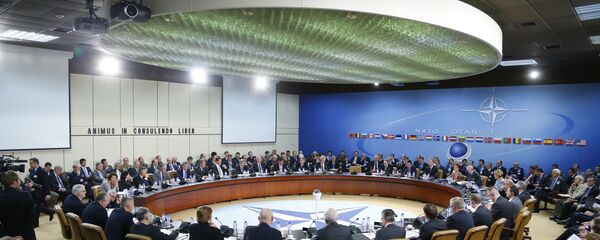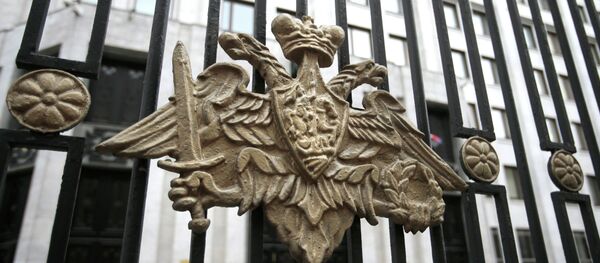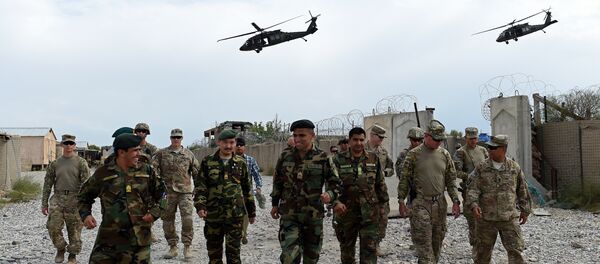A Russia-NATO Council meeting will be held on the level of foreign ministers, Antonov told journalists, adding that the meeting will be between permanent envoys.
He noted that the Russian Defense Ministry had expressed hope that the meeting would be a signal for NATO to think about the future of its cooperation with Moscow.
The possibility of such a meeting is now in consideration, a source in the Russian Foreign Ministry told Gazeta.Ru.
If the announced meeting takes places it will be the first official contact between NATO command and Russia’s envoy to alliance Alexander Grushko. From time to time, Grushko has been reported to have informal meetings with his NATO colleagues. However, he has had no official contact at NATO headquarters yet. In 2014, Russia recalled its NATO military representative Valery Evnevich.
Now, as the Ukrainian conflict has calmed and Russia has been engaged in a military operation in Syria the need for dialogue between Moscow and NATO has surfaced again.
Some NATO members, including Germany and France, have repeatedly called to restore dialogue with Russia. As for France, it has established military cooperation on Syria with Moscow. At a Defense Ministry meeting, Russian President Vladimir Putin called Paris an ally in fighting terrorists. Deputy Defense Minister Antonov told journalists that Russia and the West still have military contacts.
Nevertheless, despite the fact that some cooperation is underway, there are a number of differences between Moscow and NATO, which are unlikely to be settled in the near future. One of the most difficult issues is the 2011 OSCE Vienna Document, binding NATO members to share information annually on military forces and spending. Currently, the alliance is insisting on updating the document for greater transparency in mutual control. Russia has said the move is impractical, citing "anti-Russian NATO military exercises and the suspended military ties between Moscow and the alliance."
According to Alexei Arbatov, an international security expert at the Russian Academy of Sciences, the 2011 Vienna Document needs modernization, especially taking into account the new developments in global security.
"Conflicts are growing more complicated, and greater mutual transparency is crucial. Only those having some secret plans want to avoid transparency. The point is that the modernization should consider the interests of all parties to the agreement," the analyst was quoted as saying by Gazeta.Ru.
One of the Russian main concerns is NATO’s military buildup along its borders, particularly in the Baltics. Kremlin has said this violates the 1997 Founding Act regulating relations between Russian and NATO. NATO has responded that military equipment and personnel are deployed on rotation basis.
However, analysts have said that the possible reset in Russia-NATO ties heavily depends on the US, which dominates the alliance’s agenda.
Russia and the US maintain some sort of cooperation on Syria. However, earlier this week, the Russian Defense Ministry said the Pentagon had refused to establish a joint coordination center on Syria.
At the same time, James Cartwright, the former Vice Chairman of the US Joint Chiefs of Staff, has said military cooperation between Russian and the US will continue.
"The longer we are there [in Syria] the stronger our cooperation will be. This dialogue may not be enough to resolve the Syrian crisis, but it could help in the talks on Syria," Gen. Cartwright told Gazeta.Ru during his recent visit to Moscow.




